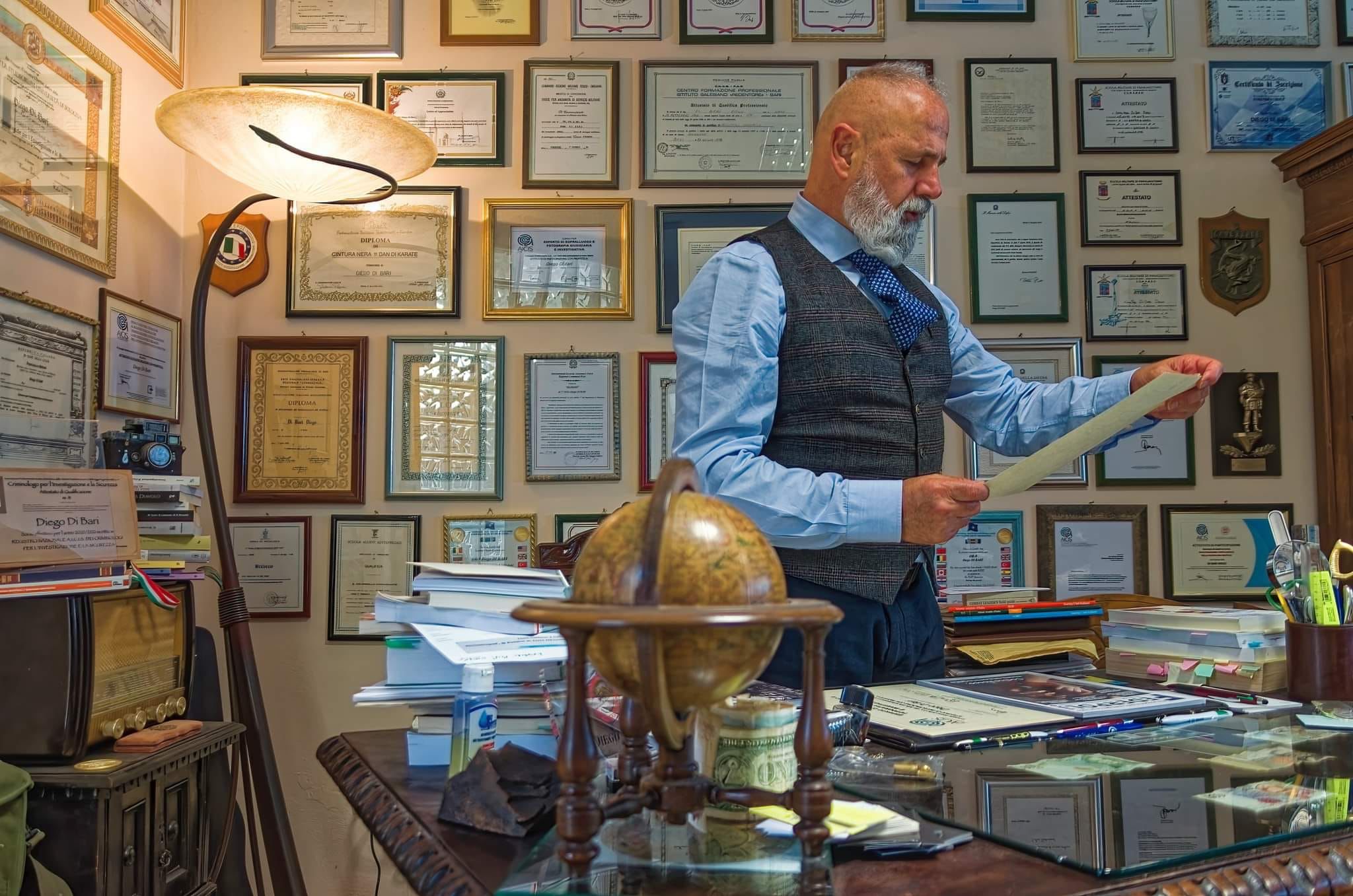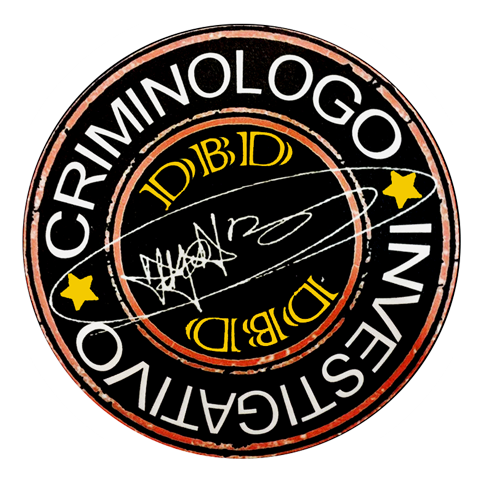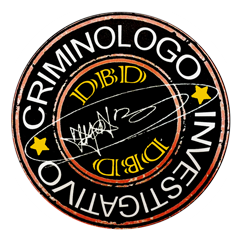DR. DIEGO DI BARI
Investigative Criminologist expert in Forensic Sciences
Criminological Investigations
Criminological investigations are a further and specific development of both private and defensive investigative activities required for facts-crimes that require particular and specific attention. They are generally required for particularly serious crimes such as: murder, kidnapping, sexual violence, robbery, drugs, etc., often also for crimes of lesser gravity on which, however, it is important, for defensive purposes, to carry out an in-depth analysis of the personality of the offender and / or on the methods of committing the crime. In order to arrive at a suitable and complete criminological picture it is necessary to integrate the pure investigative activity with other elements, designed to provide scientific technical support.
Through specialized laboratories, each for the specific sector, we carry out research and analysis relating to fingerprints, biological traces, tissues, hair, blood traces, urine, seminal fluid, cells from different tissues, saliva and sweat, as well as those relating to forensic-DNA genetics, toxicology, fingerprinting, graphology, product analysis, safety and environment.
Law 397/00 governs the defensive investigation in the course of the new criminal proceedings, allowing the defense the right to use the figure of the private detective, duly authorized, to carry out investigative activities aimed at research and verification, to better bring out the procedural truth in favor of their clients.
These activities, in agreement with the law firm, allow to hear witnesses, propose new investigative initiatives to the competent Judicial Authority, aimed at gathering further evidence or traces, in order to better bring out the procedural truth and allow to be exonerated from serious accusations or heavy suspicions.
criminal investigations
(law 397 of 7.12.2000)
indagini in ambito penale
(law 397 of 7.12.2000)
Law 397/00 governs the defensive investigation in the course of the new criminal proceedings, allowing the defense the right to use the figure of the private detective, duly authorized, to carry out investigative activities aimed at research and verification, to better bring out the procedural truth in favor of their clients.
These activities, in agreement with the law firm, allow to hear witnesses, propose new investigative initiatives to the competent Judicial Authority, aimed at gathering further evidence or traces, in order to better bring out the procedural truth and allow to be exonerated from serious accusations or heavy suspicions.
DETECTIVE AGENCY
Dr. Diego DI BARI Investigative Criminologist expert in Forensic Sciences
send us an emailCrime scene analysis

In popular imagination, for every heinous crime you should always find traces of DNA, some fibers, some vegetable spores, tire tracks, signs of burglary tools, in short, something that allows you to connect the crime to a culprit in an indisputable way. We think of an army of experts who, having arrived at the crime scene, analyze the finds collected according to their sphere of competence, in search of information: some take shots and photos and dedicate themselves to documents and handwriting, others to weapons and tools, still others to DNA and organic materials.
But in the real world, something else happens: there can be hundreds of fingerprints at a crime scene, DNA evidence is a rare, expensive and totally useless test if you don't have the other DNA to compare or a bank. data to draw on. The famous fibers are often not adequate, as they correspond to so many positive comparisons that detectives do not continue on that path.
Finally, we must not forget that, too often, the investigative units that first intervene on the scene of crime, they are not experts in detections and, indeed, end up becoming the primary cause of the dispersion or destruction of essential clues.
Having said this, an army of technicians is not necessary for the analysis of the crime scene, but the intervention of a few experts is sufficient who with timeliness, asepticity and, above all, objectivity, carry out an accurate inspection, which can allow precise detection. of all the material elements that distinguish the criminal act, in the phase immediately following its discovery. Contacting Dr. Diego DI BARI means relying on a consultant expert in crime scene analysis, both for the detection of materials and evidence in which the data are acquired without any further processing and evaluation, and in the subsequent phase of 'assessment in which the evidence and evidence is transformed through analytical procedures and laboratory methods.
 Dr. Diego DI BARI, in fact, through forensic scientific technical laboratories, can make or verify the technical and laboratory investigations on biological finds, as well as instrumental investigations on blood stains or substances of various kinds and, finally, make full ballistic exams.
This is because it is of fundamental importance that in the phase following the surveys, when the evidence and clues arrive at the Court, the parties involved in the process have the assistance of capable and experienced professionals, in order to validate or (conversely) deny the possible identification of a person as guilty of committing a crime.
Dr. Diego DI BARI, in fact, through forensic scientific technical laboratories, can make or verify the technical and laboratory investigations on biological finds, as well as instrumental investigations on blood stains or substances of various kinds and, finally, make full ballistic exams.
This is because it is of fundamental importance that in the phase following the surveys, when the evidence and clues arrive at the Court, the parties involved in the process have the assistance of capable and experienced professionals, in order to validate or (conversely) deny the possible identification of a person as guilty of committing a crime.
 Dr. Diego DI BARI, in fact, through forensic scientific technical laboratories, can make or verify the technical and laboratory investigations on biological finds, as well as instrumental investigations on blood stains or substances of various kinds and, finally, make full ballistic exams.
This is because it is of fundamental importance that in the phase following the surveys, when the evidence and clues arrive at the Court, the parties involved in the process have the assistance of capable and experienced professionals, in order to validate or (conversely) deny the possible identification of a person as guilty of committing a crime.
Dr. Diego DI BARI, in fact, through forensic scientific technical laboratories, can make or verify the technical and laboratory investigations on biological finds, as well as instrumental investigations on blood stains or substances of various kinds and, finally, make full ballistic exams.
This is because it is of fundamental importance that in the phase following the surveys, when the evidence and clues arrive at the Court, the parties involved in the process have the assistance of capable and experienced professionals, in order to validate or (conversely) deny the possible identification of a person as guilty of committing a crime.

